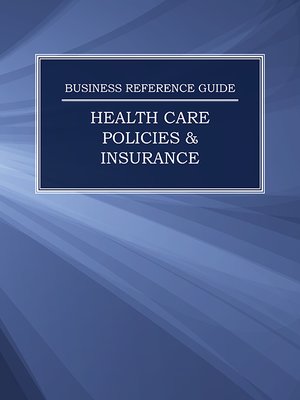
Sign up to save your library
With an OverDrive account, you can save your favorite libraries for at-a-glance information about availability. Find out more about OverDrive accounts.
Find this title in Libby, the library reading app by OverDrive.



Search for a digital library with this title
Title found at these libraries:
| Library Name | Distance |
|---|---|
| Loading... |
The collection opens with Simone I. Flynn’s analysis of a variety of insurance plans and programs, including employersponsored
health insurance, private health insurance providers, and government insurance, such as Medicare and
Medicaid. The strengths and weaknesses of current health care delivery and finance are examined in the following
essay by Michele L. Kreidler, who reviews these strengths and weaknesses in terms of their impact on public health
and national health care expenditures. Kreidler describes health care finance as a “tangled web” of stakeholders and
notes that any effort to reform the country’s health care finance systems will be difficult and complex as the debate
continues on who is ultimately responsible for health care coverage, be it the individual, the employer, or the government.
In the following article, Kreidler introduces the groundbreaking work of Nobel Prize winning economist
Kenneth J. Arrow who introduced the study of medical economics. Arrow argued that a “moral hazard in medical
insurance arises from inequalities of information between the insurer on the hand and the physician and patient on
the other.” This information asymmetry, in which health care providers hold a “monopoly” on medical information
over patients, causes the medical market to be characterized as a noncompetitive equilibrium and therefore requiring
government oversight and intervention.







